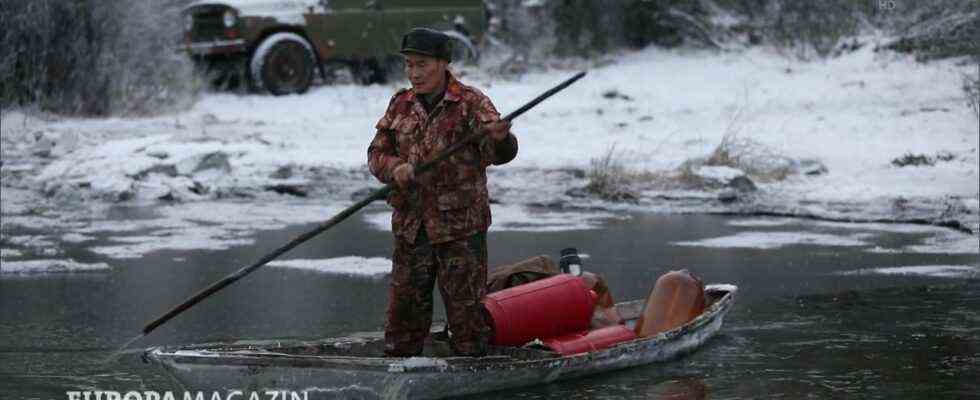European magazine
Status: December 18, 2021 8:47 a.m.
Once a month Andrian Cromow makes his way through the taiga – and brings the residents post, pensions and goods to their villages. But even in the remote part of Siberia, the problems of the present are not far away.
Katschug in Siberia, around 4,000 kilometers from Moscow, is the last outpost of civilization: Here there is still electricity and cell phone reception. From there, Andrian Chromow brings mail, pension payments and much more to the remote villages in the Russian taiga once a month. To where people are left to fend for themselves.
This time Chromow is worried about the weather. Climate change is noticeable in Siberia, it is much too warm for the time of year. “We had a whole week at minus 22 degrees,” he says. “And some fishermen were able to go there across the frozen rivers. But now they can’t go back because the rivers are open again. The ice has thawed because the weather has warmer again.”
Postman in the vastness of the taiga
European magazine, December 19, 2021
“Brings everything I ask for”
From Katschug, the postman drives his old Soviet-era army jeep to Tyrka, his first destination. The few people there live from hunting and fishing. It will take him 18 hours. An arduous journey. In the middle of the night the path is blocked by tree trunks, he has to cut a swath through the forest to reach Tyrka.
Chromow also brings the mail and, above all, the pension in the neighboring village of Tschinonga. For Nadia Karnakowa he is the last connection to the outside world: “Andrian brings me medicine. And everything I ask about. He never says no. Just brings everything. Yes, that’s our postman!”
Andrian Chromow brings people what they ask – that makes him happy, he says.
Karnakowa lives on a monthly pension of around 50 euros. Actually, the vareniki that she makes today are filled with minced meat. But that would be pure luxury. “The filling is made of potatoes. I have meat, a hunter brought that for me,” she says. “But I’ll save the meat for the New Year celebrations.”
Bitter poverty also in the neighboring house. But that’s not the problem at all, says Nina Skornjakova: The worst thing is that there is no doctor, no medical care in the village. “If someone is seriously ill, we call the doctor who comes by helicopter. Or they say: Bring us the patient! But how can we transport a sick person? Somebody here recently had a stroke. How can you bring him with a horse?” It got better after a few days. But his arm and leg didn’t get well. “
Villages threatened by climate change
A hard life in the midst of the dreamy taiga landscape. The livelihoods of the inhabitants are threatened: by climate change and the overexploitation of nature. “This is the last place in the region where there is still natural life,” says Fyodor Safonov, a hunter. “Our river is the last where there is still fish. Everything is getting less and less. The forests are being cut down for timber, the rivers are becoming shallower and the fish are disappearing.”
On the way back to Tyrka, the consequences of climate change in Siberia are clearly visible: in summer the forests burn here – the journey goes for kilometers through charred tree stumps.
Despite all the problems: Andrian Chromow feels at home in Tyrka. He wants to live here after his retirement. That’s one reason he’s doing this job, he says. For him, it’s not about the few rubles he gets for it, but about the feeling of being needed: “It’s good to know that someone needs you. To see those shiny eyes when you bring your pension. I forget that all the troubles when I think about doing a good deed for people. “
You can see these and other reports on Sunday, December 19, 2021 at 12.45 in the “Europamagazin”.

